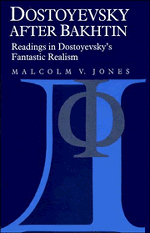Summary
Science, says Thomas Kuhn, has periods of crisis, when there is no agreement about the dominant paradigm, when application of the paradigm which has previously governed scientific enquiry in a particular area discloses an unacceptable number of anomalous cases which cannot be convincingly assimilated to it; at such moments new paradigms may be proposed which are more successful in accounting for the evidence and which necessitate a radical re-evaluation of work governed by earlier paradigms.
Dostoyevsky's view of society in his day bears a striking resemblance to this process: he saw his world as passing through a crisis in which the old paradigms linking the concepts of God and people had, for better or for worse (and he tended to think for worse), ceased to be adequate to the evidence which people sought to account for, and in which there was an anarchic clamour of competing alternatives, each with its adherents and each more or less equally adequate to the facts, but no general agreement on a new paradigm which would force an abandonment or re-evaluation of the rest. It is perhaps this fundamental feature more than any other which makes him seem so modern (a modernist/post-modernist slipping in and out of old-fashioned clothing).
- Type
- Chapter
- Information
- Dostoyevsky after BakhtinReadings in Dostoyevsky's Fantastic Realism, pp. vii - xviiiPublisher: Cambridge University PressPrint publication year: 1990



